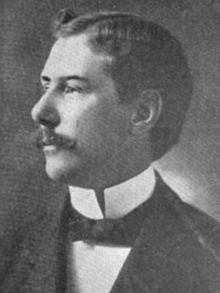Joseph Aloysius Conry | |
|---|---|
 | |
| Director of the Port of Boston | |
| In office 1911–1916 | |
| Consul of Russia to the United States | |
| In office 1912–1919 | |
| Monarch | Nicholas II |
| Member of the U.S. House of Representatives from Massachusetts's 9th district | |
| In office March 4, 1901 – March 3, 1903 | |
| Preceded by | John F. Fitzgerald |
| Succeeded by | John A. Keliher |
| Chairman of the Boston Board of Aldermen | |
| In office April 1, 1898 – October 1, 1898 | |
| Preceded by | Perlie Appelton Dyar |
| Succeeded by | David Frankln Barry |
| Member of the Boston Board of Aldermen[1] | |
| In office 1898 | |
| President of the Boston Common Council[1] | |
| In office 1896–1897 | |
| Preceded by | Christopher Francis O'Brien |
| Succeeded by | Timothy Lawrence Connolly |
| Member of the Boston Common Council from Ward 2[1] | |
| In office 1895–1897 | |
| Succeeded by | Joseph F. Hickey |
| Personal details | |
| Born | September 12, 1868 Brookline, Massachusetts, United States |
| Died | June 22, 1943 (aged 74) Washington, D.C., United States |
| Resting place | Mount Olivet Cemetery |
| Political party | Democratic |
Joseph Aloysius Conry (September 12, 1868 – June 22, 1943) was an American politician who served as a United States representative from Massachusetts. Although he served only a single term, he received national attention for his reformist views. He remained a highly popular speaker and writer, despite losing an election to Congress in 1908. Before serving in Congress, he held municipal office in Boston.
Russia named him Consul to the United States in 1912, a position in which he served until 1919. He was also director of the Port of Boston from 1911 to 1916.
- ^ a b c "A Catalogue of the City Councils of Boston, 1822-1908, Roxbury, 1846-1867, Charlestown, 1847-1873 and of the Selectmen of Boston, 1634-1822: Also of Various Other Town and Municipal Officers". City of Boston Printing Department. 1909. pp. 48, 158, 165. Retrieved 31 October 2022.